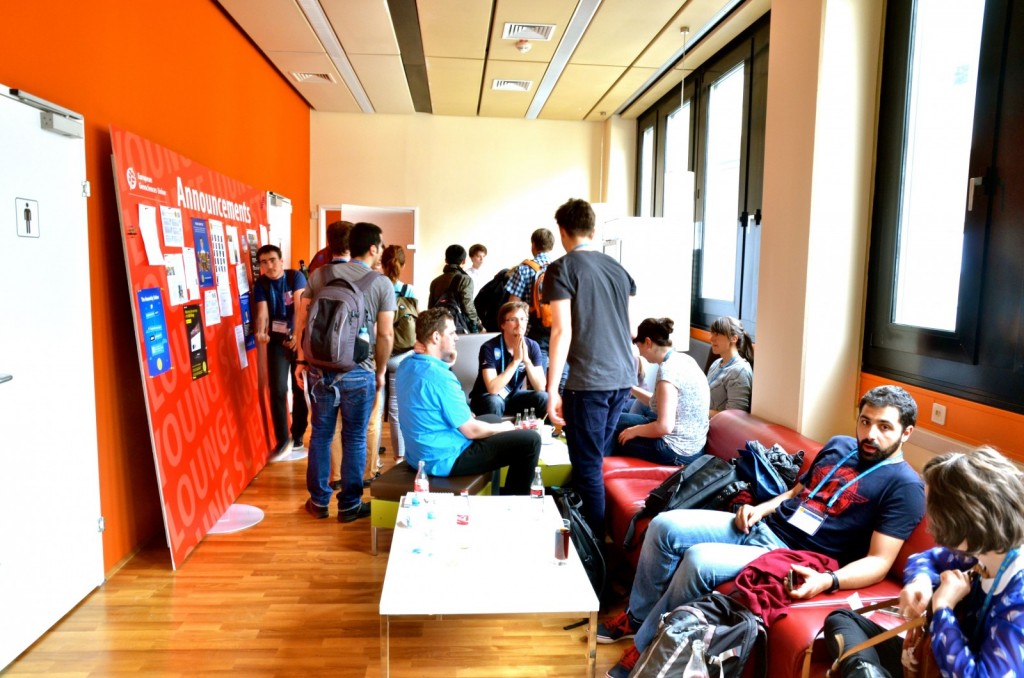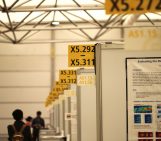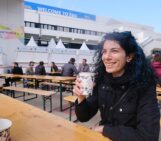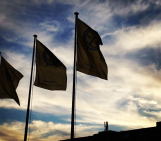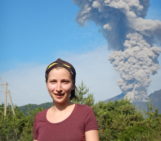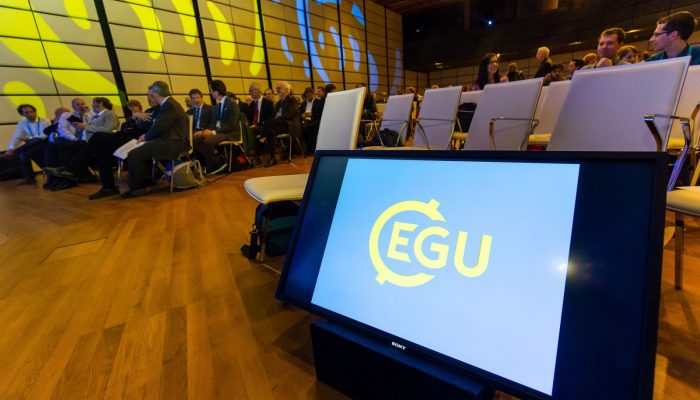
Welcome back to the second day of the 2017 General Assembly! Today is packed full of excellent sessions, and this list of highlights is by no means comprehensive! Make sure you complement this information with EGU Today, the General Assembly newsletter, to get the most out of the conference – grab a copy on your way in or download it here.
Today, the General Assembly programme features two Interdisciplinary events, which tackle a common theme through an interdisciplinary combination of approaches. The aim of the sessions is to foster cross-division links and collaborations. The first session starts at 08:30 presentations from seven different divisions explore R’s deliberate role in the Earth science. Monitoring the Sustainable Development Goals with the huge remote sensing archives is the focus of the second Interdisciplinary event, which kicks off at 10:30. Both events take place at PICO spot A (second floor, red level, in Poster Hall A).
The first of this year’s Great Debates takes place today too and discusses one of the most contended topics in the Earth sciences: what really caused the demise of the dinosaurs? Although popular belief is that the Chicxulub meteorite was the sole cause of the extinction of the dinosaurs, many geoscientists are not so sure. The causes of all mass extinctions will be debated by a panel of experts. Join in the debate from 15:30–17:00 in E1. You can follow the session on Twitter with #EGU17GDB, and, if you’re not attending, tune in with the conference live stream.
Don’t forget that when you need to kick back and relax, you can head on over to GeoCinema, and enjoy a geologically themed film (10:30–19:00 daily in the GeoCinema Room, 0.90 on the yellow level). Today’s pick is Ichiro and the wave, a fisherman’s first-hand account of his boat being struck by the 2004 Indian Ocean tsunami. It is showing from 14:30.
The day is full of fantastic scientific sessions, from understanding earthquake source processes (SM2.1/EMRP4.12: Orals 08:30 to 12:00 and 13:30 to 15:00 in Room M1 / Posters from 17:30 in Hall X3), through to getting beyond the case study: Concepts in Earth Sciences (GM1.1/EOS20/CL5.18/SSS13.1: Orals from 10:30 to 12:00 in Room L1 / Posters from 17:30 in Hall X2) and studying the climate of the last two millennia (CL1.03: Orals from 13:30 in Room F2 / Posters from 17:30 in Hall X5).
Today is also a bumper day for Medal Lectures, there are eighteen taking place throughout the day covering various areas of the geosciences. Make sure you check the programme so that you don’t miss them. The Jean Dominque Cassini Medal Lecture by Luciano Iess (ML4: 12:15 – 13:15 / Room E1) is being streamed live.
If you’re an early career scientist (ECS), this year’s conference has more than ever on offer for the ECS community, and today is a bumper day, packed full of ECS-related activities. Meet the EGU Union-level ECS Representatives (Laura Roberts, Lena Noack and Roelof Rietbroek) at the EGU Booth from 11:15 to 12:45, to find out more about the Union and how to get involved. Throughout the day, a number of the ECS Representatives will also be available at the Booth, as will various division presidents. Check the programme for full details. If you want an opportunity to network and meet established scientists who can offer advice on anything from how to prepare a research grant to how to balance your research and personal life, why not come along to the EGU’s Early Career Scientists Networking & Careers Reception – now open to all ECS – from 19:00 in room F2. Light snacks and drinks will be served when you arrive!
If you want to hone your transferable skills and dedicate a bit of time to developing your career, then today’s short courses are for you:
- How to write a research grant (SC15: 08:30-10:00 in -2.91)
- What is science policy and how can scientists communicate with policy officials? (SC28, 10:30–12:00 in -2.91)
- How to write a successful ERC Grant Proposal (SC5, 13:30–15:00 in -2.91)
- Academia is not the only route: exploring alternative career options for Earth scientists (SC14, 15:30–17:00 in -2.91)
There is also a treat of Townhall Meetings on this evening. These meetings allow for a lot more open discussion than many of the Assembly’s other sessions and take place outside the usual time blocks. Here are some of the highlights:
- Future Missions to the Ice Giant Planets (TM6, 19:00–20:30 / Room L2)
- Research for Ocean Sustainability – a Knowledge-Action Network of Future Earth and partners (TM14, 19:00–20:30 / Room L1)
And there’s a suite of smaller Splinter Meetings organised by conference participants too. Why not join the discussion on how to improve the data format/structure of preliminary EUSTACE-products (give publicly available daily estimates of surface air temperature since 1850 across the globe) (SMP21: 08:30 – 12:00 / Room 0.51)? Otherwise, learn about measuring ambient ammonia (SMP29: 12:15 – 13:15 in 2.61) or join the subdivision meeting for SSS4: Soil Biology, Microbiology and Biodiversity (SMP40, 10:30–12:00 / Room 2.83).
Have a lovely day!

